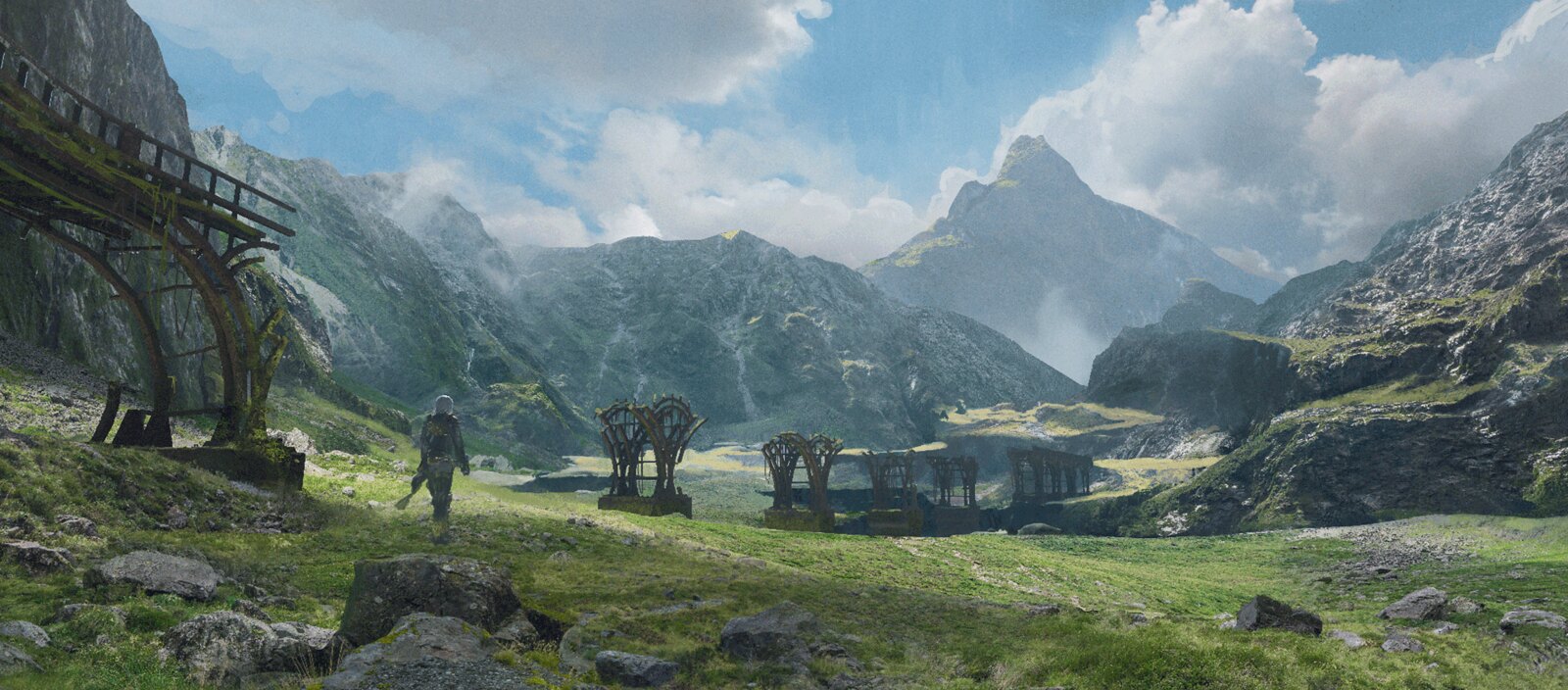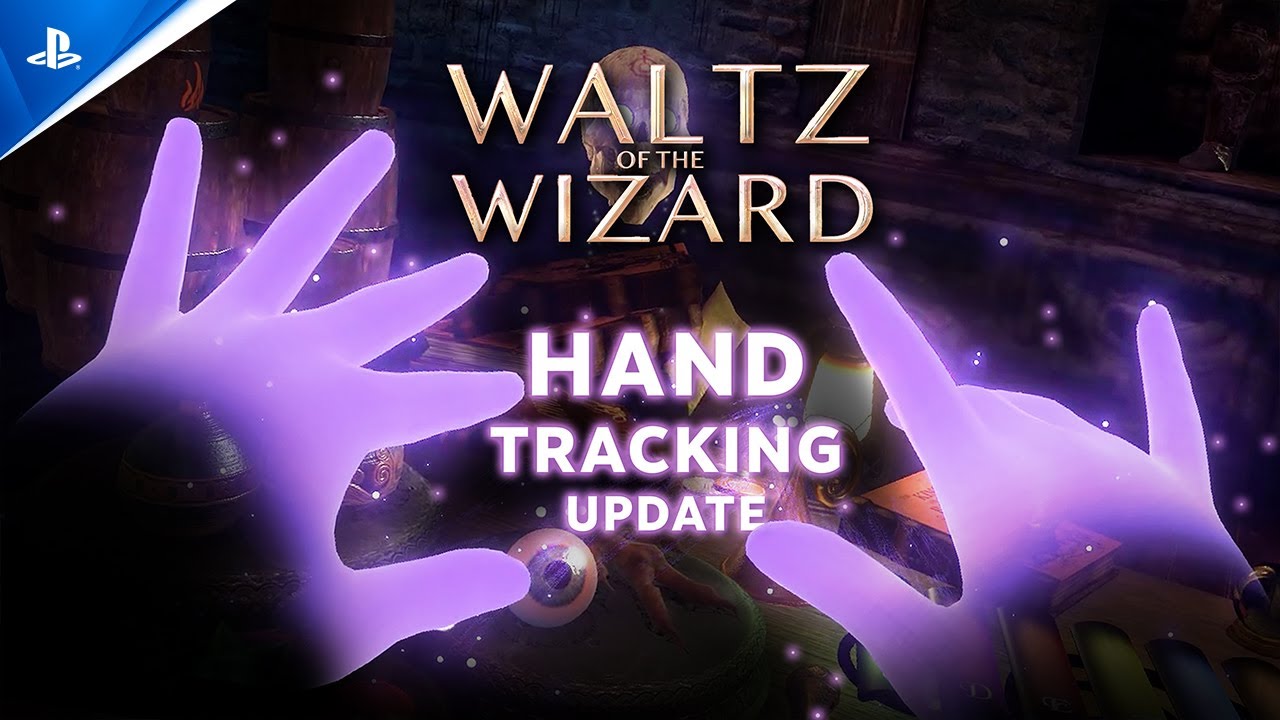Sometimes, video game music transcends its original purpose as a soundtrack. A quick glance at the numbers on any music streaming service is testament that certain scores haunt players long after they have finished a game.
In my case, Nier achieved the opposite. I was enthralled by its soundtrack before I’d even played the game. I still vividly remember the day a friend recommended it to me and how captivated and intrigued I was from the very first listen. I knew all the songs by heart by the time I finally dove into the game and I will forever remember the unique experience of discovering where each of these ethereal songs belonged in the Nier universe. The soundtrack slowly unravelled before me, finding its rightful place within the delicate story, landscapes and characters of Nier, like pieces of a puzzle finally coming together to reveal the bigger picture. A musical treasure hunt.
I’m far from the only one forever marked by that evocative score. Nier’s soundtrack, composed by Keiichi Okabe and sung by Emi Evans, was incredibly well received and collectively praised.
Perhaps one of its most unique details was the made-up lyrics Emi created, suitably named “Chaos Language”, invented to sound as if our modern languages had drifted away for thousands of years to finally become indistinguishable to us. “The reason we went for this mysterious made-up language is because we felt that as game music, having lyrics which you can recognize and understand might distract you from the gameplay,” explained Yoko Taro, the game’s director, when I met him in 2017 ahead of the launch of Nier’s sequel, Nier:Automata. “We wanted something that could truly serve as background music. If you don’t know what these mysterious words mean, you can’t get side-tracked.”
For Emi, this was the opportunity to try something completely new. “I have always been fascinated by languages, so this was a very interesting task for me and I welcomed the new challenge.” she wrote in answer to a few questions I had the opportunity to send her over email. With the newly upgraded version of Nier Replicant, due out early next year on PS4, it was the perfect time to revisit that soundtrack and her work as singer and lyricist on this unique project. “As it was my first time to create a made-up language, I had no set system in place. So for my first attempt, I just mashed together sounds from all the languages I had ever experienced. The result was the lyrics for ‘Song of the Ancients’.
“I was shown a short clip of Devola and Popola and was told that this was to be their theme. This was the very first piece I recorded for Nier and my first attempt at creating a made-up language. There’s German, Hungarian, Welsh, Japanese, French, and Latin, as well as some extra sounds I thought up myself!”
Song of the Ancients – Devola
“I was pleased with what I had written, but quickly realised that simply mashing up random sounds would give similar sounding results every time. In order to produce different sounding lyrics and character for each song, I would need to come up with a new method.
“I shared my concerns and I believe that it was Okabe-san who came up with the wonderful idea to base each song on a real existing language, imagining what it might sound like thousands of years into the future.”
‘Song of the Ancients’ excluded, the rest of the Nier Gestalt/Replicant soundtrack would be inspired by single existing languages, bringing a unique feel and flair to each track. Emi started working on the lyrics for every song she sung on the soundtrack, thoroughly researching each language.
“To begin with, if I haven’t already been instructed, I decide on a language. Usually I listen to the music and then, having grasped the song’s atmosphere, I research to find a language which I think would make a good match. For instance, for one song I might feel that a gentle, flowing sounding language would be suitable, for another song maybe I will want to use a language which sounds harsher with lots of guttural sounds and hard consonants. On occasion, I will blend two languages together, but usually it is just the one. Once the language is decided upon, I then go on YouTube and immerse myself in pronunciation lessons and performances in this language, trying to identify and imitate the particular sounds which seem to be characteristic.
“I write out what I can hear and collect maybe a page full of the sounds which my ears have picked out. Then I piece everything together at random, slightly altering sounds and changing letters here and there, so that everything fits the melody in a way that I find most phonetically pleasing. Then I sing them, over and over, tweaking and adjusting until they feel really comfortable and natural coming out of my mouth. Then I go back to YouTube and double check my pronunciation!
“As I am not a native speaker of these languages, it is hard for me to imagine how they might sound to a native ear, but from the comments I see online, people do seem to recognize many of my pseudo languages, so I must be doing something right!”
Fascinated by the process, I asked Emi to describe her inspirations for a few chosen tracks from the original soundtrack that I think are an astounding display of her voice and linguistic work:
Grandma
“Okabe-san asked me to base ‘Grandma’ on French. He told me that this song would play when fighting a super strong boss who would weaken you by making you recall your most painful memories. So, as I sang, I just mournfully opened up the back of my throat and softly wailed out the beautiful high notes. Hearing the playback of my vocals on ‘Grandma’ for the first time was one of my most memorable studio moments for Nier Replicant. I had only just received the track the day before and, as it was still unfamiliar to me, I couldn’t imagine how it would turn out. Yet, in a very short space of time, the song somehow transformed itself into a gorgeous, woeful piece which was giving me goosebumps!”
The Wretched Automatons
“‘The Wretched Automatons’ was fun and the easiest of all, as I was asked to base it on my own native language, English. I just strung together all my favourite sounding words then tweaked them to make sure they had no meaning and then tried to pronounce them in a “cool” way. I was told that this would be used on a large metallic scrap heap where robots would attack you, but the arrangement [at the time] was very simple, with none of the percussive sounds. I had the biggest surprise when the OST came out and I couldn’t believe how much this song had transformed!”
Kainé
“‘Kainé’ I was asked to base on Gaelic. I really enjoyed researching this language and found that something about the vowel and “r” sounds gave it an air of beautiful attitude. So later when I was told that Kainé’s character was rather unrefined, yet gorgeous, I thought the lyrics were a perfect match. ‘Kainé’ is the song which seems to make fans cry the most, especially when I perform it live, but for me, this will always be an uplifting song full of tenderness and power.”
Regardless of the original language that inspired each song, Emi’s invented lyrics helped the entire soundtrack feel all the more ethereal. “For Nier, certainly “Chaos Language” worked extremely well to convey a sense of sadness, despair, peace and mystery, but for other projects I have found that it works equally well for hopeful, uplifting songs – even songs which are sweet and joyful.”
“What I have learnt about using invented languages is that, as they have no meaning, they completely allow the listener’s imagination to make its own emotional interpretation of the song. I feel that the potential to evoke deep and personal emotions is far greater than using lyrics with actual meaning. Singing in “Chaos Language” allows me to express myself so honestly just using the tone of my voice, without feeling that words are limiting me or getting in the way. So maybe the catharsis which I feel as I sing also communicates to the listener in a unique and positive way.”
“While recording each song for Nier Replicant and singing in “Chaos language” for the first time, I remember feeling so excited and fascinated to hear each song blossom in the studio. On paper, my lyrics were just a series of meaningless sounds strung together, yet once I started singing them and layering up the tracks, these lyrics suddenly sprang to life and took on a meaning and personality, all of their own. Hearing each set of lyrics transform like this, almost beyond my control, was such a thrill for me.”
Nier Replicant ver.1.22474487139…, the remake of the original, will release in April 2021 with newly recorded versions of the songs from the original soundtrack. When I asked Emi how she felt getting back on this project a decade later, she wrote:
“When I first recorded, it was with much uncertainty as I didn’t know how my made-up lyrics or even my voice would be received by the players. Also, tight deadlines meant that sometimes I wouldn’t hear the tracks until the day before the scheduled recording, so I would have to familiarize myself with them and write lyrics overnight. I remember being really sleepy a lot of the time in the studio and worrying if what I’d come up with would be good enough.
“So, to have been able to re-record all these songs, which have grown so dear to me, with full confidence thanks to the love which the fans have shown over the years, has been such a dream come true. I don’t think my voice has changed that much in these last ten years, nor the way in which I performed, but this time I felt such gratitude and love as I recorded each song. I hope this will bring an extra depth to the music which the fans can feel too!”
Want to know more about Emi’s career and creative process as well as her work on Nier Gestalt/Replicant, Nier:Automata and the upcoming Nier Replicant ver.1.22474487139…? Listen to the interview on the Official PlayStation podcast.
Liked the selected tracks above? You may also be interested in the Nier: Theatrical Orchestra 12020. This Blu-ray release features full orchestral performances of select tracks from both Nier Gestalt/Replicant and Nier:Automata, performed in Japan’s Tokyo International Forum this past March. Find out more here*.
*For local availability of Nier: Theatrical Orchestra 12020, please check the Square Enix store.










